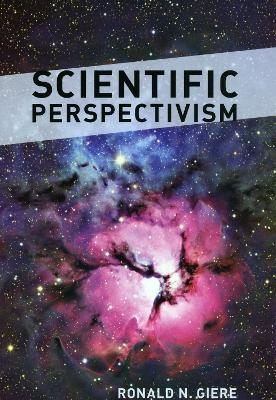
Scientific Perspectivism
Seiten
2010
University of Chicago Press (Verlag)
978-0-226-29213-7 (ISBN)
University of Chicago Press (Verlag)
978-0-226-29213-7 (ISBN)
Many people assume that the claims of scientists are objective truths. This title argues that the acts of observing and theorizing are both matters of perspective - which makes scientific knowledge contingent. It also states that colors do not actually exist in objects.
Many people assume that the claims of scientists are objective truths. But "Scientific Perspectivism" argues that the acts of observing and theorizing are both matters of perspective - which makes scientific knowledge contingent. Using the example of color vision in humans to illustrate how his theory of 'perspectivism' works, Ronald N. Giere argues that colors do not actually exist in objects; rather, color is the result of an interaction between aspects of the world and the human visual system. Giere extends this argument into a general interpretation of human perception and, more controversially, to scientific observation, conjecturing that the output of scientific instruments is perspectival. Furthermore, as Giere posits, complex scientific principles - such as Maxwell's equations describing the behavior of both the electric and magnetic fields - by themselves make no claims about the world, but models based on those principles can be used to make claims about specific aspects of the world.
Many people assume that the claims of scientists are objective truths. But "Scientific Perspectivism" argues that the acts of observing and theorizing are both matters of perspective - which makes scientific knowledge contingent. Using the example of color vision in humans to illustrate how his theory of 'perspectivism' works, Ronald N. Giere argues that colors do not actually exist in objects; rather, color is the result of an interaction between aspects of the world and the human visual system. Giere extends this argument into a general interpretation of human perception and, more controversially, to scientific observation, conjecturing that the output of scientific instruments is perspectival. Furthermore, as Giere posits, complex scientific principles - such as Maxwell's equations describing the behavior of both the electric and magnetic fields - by themselves make no claims about the world, but models based on those principles can be used to make claims about specific aspects of the world.
Ronald N. Giere is professor of philosophy emeritus at the University of Minnesota, a former director of the Minnesota Center for Philosophy of Science, and a past president of the Philosophy of Science Association. He is the author or editor of many books, including, most recently, Science without Laws, also published by the University of Chicago Press.
| Erscheint lt. Verlag | 9.7.2010 |
|---|---|
| Sprache | englisch |
| Maße | 15 x 23 mm |
| Gewicht | 255 g |
| Themenwelt | Naturwissenschaften ► Physik / Astronomie ► Optik |
| ISBN-10 | 0-226-29213-4 / 0226292134 |
| ISBN-13 | 978-0-226-29213-7 / 9780226292137 |
| Zustand | Neuware |
| Haben Sie eine Frage zum Produkt? |
Mehr entdecken
aus dem Bereich
aus dem Bereich
Grundlagen - Verfahren - Anwendungen - Beispiele
Buch | Hardcover (2022)
Hanser, Carl (Verlag)
CHF 69,95
Grundlagen und Anwendungen
Buch | Hardcover (2023)
Hanser, Carl (Verlag)
CHF 83,95


